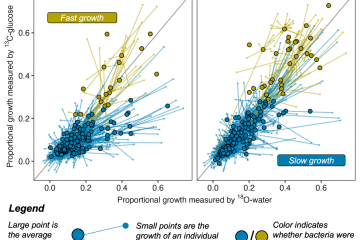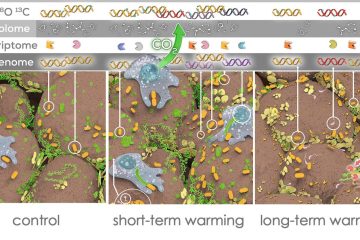Indirect influences of a major drought on leaf litter quality and decomposition in a southwestern stream
Climate models predict that the southwestern United States will experience an increase in drought frequency and intensity with global climate change. We tested the hypothesis that leaf litter produced under natural drought conditions would have an altered litter chemistry profile and affect decomposition rates and macro invertebrate colonization compared to non-drought conditions. To test this hypothesis we collected leaf litter from Populus fremontii, Alnus oblongifolia, and Platanus wrightii grown during an average precipitation year (2001) and a record drought year (2002) and performed an in-stream decomposition study using both litter types. Three major patterns emerged: 1) Drought conditions significantly altered litter chemistry for mature trees of three species; however, the direction and magnitude of change differed among species and litter chemicals; 2) Leaf litter mass loss was influenced by both differences among species and drought; yet, species effects were more pronounced over time than drought effects; and 3) After 69 days of decomposition, the structure of the macroinvertebrate community was uninfluenced by the drought effect on A. oblongifolia or P. wrightii litters, but there was a community-wide drought effect on macroinvertebrate communities colonizing P. fremontii litter. Many recent studies have explored the influence of drought on stream flow and water temperatures, but these results suggest that litter quality can change under different climatic conditions, but the overall decay of leaf material may not be dramatically altered by droughts. Understanding how forest-stream interactions may be altered by the various influences of climate change will allow for better predictions regarding how long-term disturbances may alter stream ecosystem functioning.


